How to Avoid Futures Trading Scams in 2025
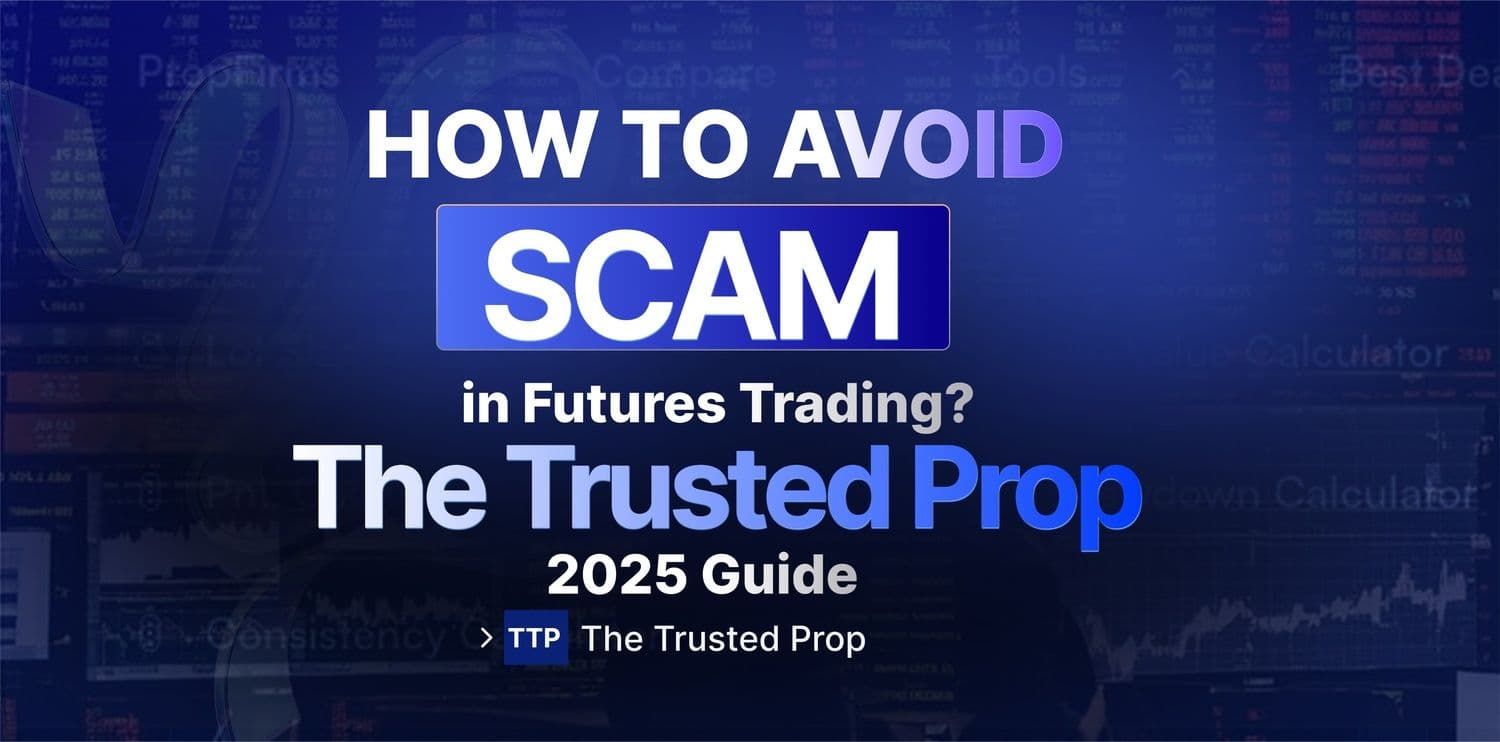
How to Avoid Futures Trading Scams in 2025
6/14/2025
A Trusted Guide for New and Growing Traders
It usually starts with a dream: get funded, trade like a pro, finally quit your 9-5. Scammers aren’t just selling dreams, they’re selling urgency.
But in 2025’s crowded prop trading scene, that dream can turn into a nightmare fast. Behind every promise of fast funding and zero risk, there’s a dark undercurrent of manipulation scammy prop firms built to drain your wallet and waste your time.
If you’ve ever fallen down a YouTube rabbit hole of trading success stories, or felt tempted by a 90% profit split with instant funding, this guide is your seatbelt. Futures trading isn’t broken but some of the firms promoting it definitely are. Let’s fix that.
Why Futures Trading Scams Are Surging Right Now
Prop trading has exploded in popularity, especially among Gen Z and millennial traders hungry for financial freedom. But with that boom comes a gold rush of bad actors exploiting gray areas in trading rules, payout terms, and platform access.
Look closely and you’ll find:
- Prop firms offering guaranteed returns or 100% profit splits
- Terms that shift mid-challenge or hide behind vague legalese
- Support teams that ghost you the moment you need real answers
Scams prey on the mindset of ‘I’ll take my shot’ but turn that shot into a shell game.
‘Scammers exploit ambition. Their websites sell certainty in an industry built on probabilities.’
- Episode 11, ‘The Trading Trap,’ from the podcast Scam Economy
The Red Flags That Should Stop You Cold
If a Prop Firm Shows These Signs, Walk Away
1. Too-Good-to-Be-True Promises
If a prop firm claims you’ll be funded instantly, or promotes no-risk trades and effortless passes, pause. Real trading takes risk management and discipline. If they’re skipping over that, they’re skipping over reality.
2. Hidden or Creeping Fees
Challenge fees are normal. But shifting fee structures, surprise renewal costs, or vague platform fees? That’s a no. If you can’t explain the fee structure back to someone else, it’s probably designed to confuse you.
3. Murky Trading Rules
Daily drawdowns. Maximum lot sizes. Holding over weekends. These rules should be crystal clear and not buried in PDFs or answered vaguely in Discord chats. If a firm’s rules feel like a maze, that’s intentional.
4. Unrecognizable or Closed Platforms
Trading on MetaTrader, cTrader, or TradingView? Great.
But if you’re forced onto a proprietary platform with no demo, no reviews, and no test access, it’s likely a trap. Platforms should empower, not obscure.
5. Sketchy Testimonials and Fake Reviews
Every firm claims top-rated support, but what are real traders saying? Check Reddit threads, Discords, and Trustpilot. If users report delayed payouts, account invalidations, or ghosted tickets, believe them.
Join TTP’s trader-run Discord to swap honest reviews and Red flag questionable firms before they cost you.
How to Protect Yourself Before You Commit
A Smart Trader’s Pre-Funding Checklist
Before clicking Buy Challenge, run through this quick gut-check:
- Is the fee breakdown clearly listed, with no fine print?
- Can I demo the platform before I trade?
- Are risk rules explained with examples, not jargon?
- Have I read real reviews, not just the homepage testimonials?
- Is there Discord or Reddit buzz that matches the website’s promises?
- Does the support team reply with clarity or just copy-pasted generic answers?
Bonus tip: Never pay in crypto unless the firm is extremely well-reviewed and widely trusted. Scammers love crypto for a reason it’s hard to trace and impossible to refund.
The Psychology Behind Why Good Traders Still Get Scammed
You’re Not Naive, You’re Human
Even smart, experienced traders get burned. Why? Because most scams don’t look like scams, they look like opportunity, right?
They speak directly to:
- The urgency to make it before you miss the wave.
- The frustration of being rejected by traditional financial institutions.
- The desire to belong to a winning tribe of traders.
Prop firms with bad intentions weaponize this psychology. They don’t just advertise, they mirror your dreams and that’s what makes them dangerous.
‘People don’t fall for scams because they’re stupid. They fall because the scam is emotionally calibrated to what they want most.’
- Maria Konnikova, The Confidence Game, p. 41
Knowing this won’t make you paranoid, it’ll make you powerful. The more emotionally honest you are with yourself about why you’re drawn to certain firms, the less likely you are to get pulled into a bad setup.
What Real Traders Wish They Knew Before Signing Up
Lessons From the Funded-Account Trenches
We spoke to traders in the TTP community who’ve been through it-the good, the bad, and the ‘my payout’s been pending for 6 weeks.’
Here’s what they wish they’d known from Day 1:
“Read the fine print on consistency rules.”
“One firm failed me for ‘inconsistency’ after I made a big winning day followed by two flat ones. I didn’t even know that was part of the evaluation.” - Max, 29, Miami
“Don’t assume more expensive means more legit.”
“The $300 challenge looked more ‘premium,’ but it was way harder to pass than the cheaper ones. And the cheaper one actually paid me.” - Anika, 26, Austin
“Vet how they handle losses, not just wins.”
“Everyone loves the firm when they’re winning. But when I lost a trade, support didn’t even answer for 3 days. That’s when you really learn who you’re dealing with.” - James, 34, London
Bookmark this truth: A real firm wants you to succeed long-term. A scammy one wants to fail you profitably.
Your Scam-Spotting Toolkit: Questions to Ask Before You Fund
The Due Diligence Checklist No One Gave You-Until Now
Before you hand over a dollar or a Bitcoin to any prop firm, pull out this list. It’s your BS detector in checklist form.
1. Who’s behind the firm?
Is it a registered business? Do the founders have a public presence or track record? If you can’t find any human faces or bios, it’s a red flag. Trustworthy firms don’t operate in the shadows.
2. Do they share exact rules and payout conditions up front?
Don’t accept vague terms like ‘subject to discretion.’ Look for specific drawdown levels, payout schedules, and rules about weekends, news events, and lot sizes. If it’s not in writing, assume it’s not enforceable.
3. Can I test the platform before I commit?
A legit firm will offer a trial or demo, period. If you’re expected to dive into a live challenge blind, especially on a proprietary platform, walk away.
4. Is support reachable and human?
Open a support ticket or DM their Discord before you sign up. How fast do they respond? Do they actually answer your question? Ghosting now is a sign of ghosting later.
5. Are the reviews real or recycled?
If every Trustpilot post reads like a paid ad, be suspicious. Google the firm + ‘scam,’ check Reddit threads, and look for verified Discord feedback. The truth usually lives where marketing can’t reach.
‘If you have to hope they’ll do the right thing, you’re not dealing with a trustworthy partner-you’re gambling with your time.’
- Ramit Sethi, I Will Teach You To Be Rich (2023 edition), p. 198
What to Do If You’ve Already Been Scammed
Don’t Panic. Get Smart. Get Even (Legally).
If you’ve already gotten caught in a futures trading scam, here’s how to reclaim control:
1. Report the firm publicly
Start with Trustpilot, Reddit, and relevant Discord groups. Be honest, specific, and fact-based. Your post could save someone else thousands.
2. Contact your payment provider
If you paid via credit card, open a dispute. If it was PayPal, file a claim. Crypto? That’s tougher but you can still post wallet addresses in scam reporting groups to warn others.
3. Keep all communications
Emails, chats, screenshots of promises made save everything. If you ever escalate to legal action or join a class-action suit, that documentation will matter.
4. Regroup with real traders
Scams thrive in silence. The fastest way to get back on track is to rejoin a transparent, no-BS community. (Yes, like TTP’s Discord.) You’re not alone, and your experience matters.
The Trusted Prop Standard: How We Built an Anti-Scam Culture
Because putting traders first isn’t a slogan, it’s how we actually run things.
At The Trusted Prop, we didn’t just study what makes a good prop firm. We reverse-engineered what traders actually need to thrive. That includes:
- Clear, non-punitive challenge rules
No vague ‘consistency’ clauses or hidden disqualifiers. If you meet the metrics, you pass. No games. - Upfront pricing, no backdoor fees
You’ll know exactly what you’re paying for, and why. If something changes, we tell you before it affects you. - Live support from real traders, not bots
Our Discord isn’t a ghost town. It’s where our community lives, learns, and calls BS on us, too, if needed. We welcome it. - Real scaling for real performance
If you’re trading well, we give you more capital. Not because it makes us money but because you earned it.
This isn’t about being the biggest firm. It’s about being the clearest, the fairest, and the most sustainable option in a space that too often burns out talent.
The Bottom Line: Vet the Firm Like You’re Investing in Them-Because You Are
In 2025, Due Diligence is a Trading Skill
Futures trading can be the real deal. It can unlock income, autonomy, and momentum for traders who are willing to put in the work. But you need more than strategy, you need discernment.
Ask the hard questions:
- Who runs this firm, and what’s their background?
- How long have they been active, and are they regulated anywhere?
- What happens if you break a rule, can you appeal?
- How do they define success, and does that align with your goals?
The best prop firms aren’t selling speed, they’re selling structure. And that structure should help you trade better, not just jump through hoops.
At The Trusted Prop, our only metric is your skill. If you pass the challenge, you earn your spot. Period. That’s what trust looks like in trading. Not promises and policies.
You may also like
The5ers Payout Rules, Profits & Withdrawals (2026 Guide)
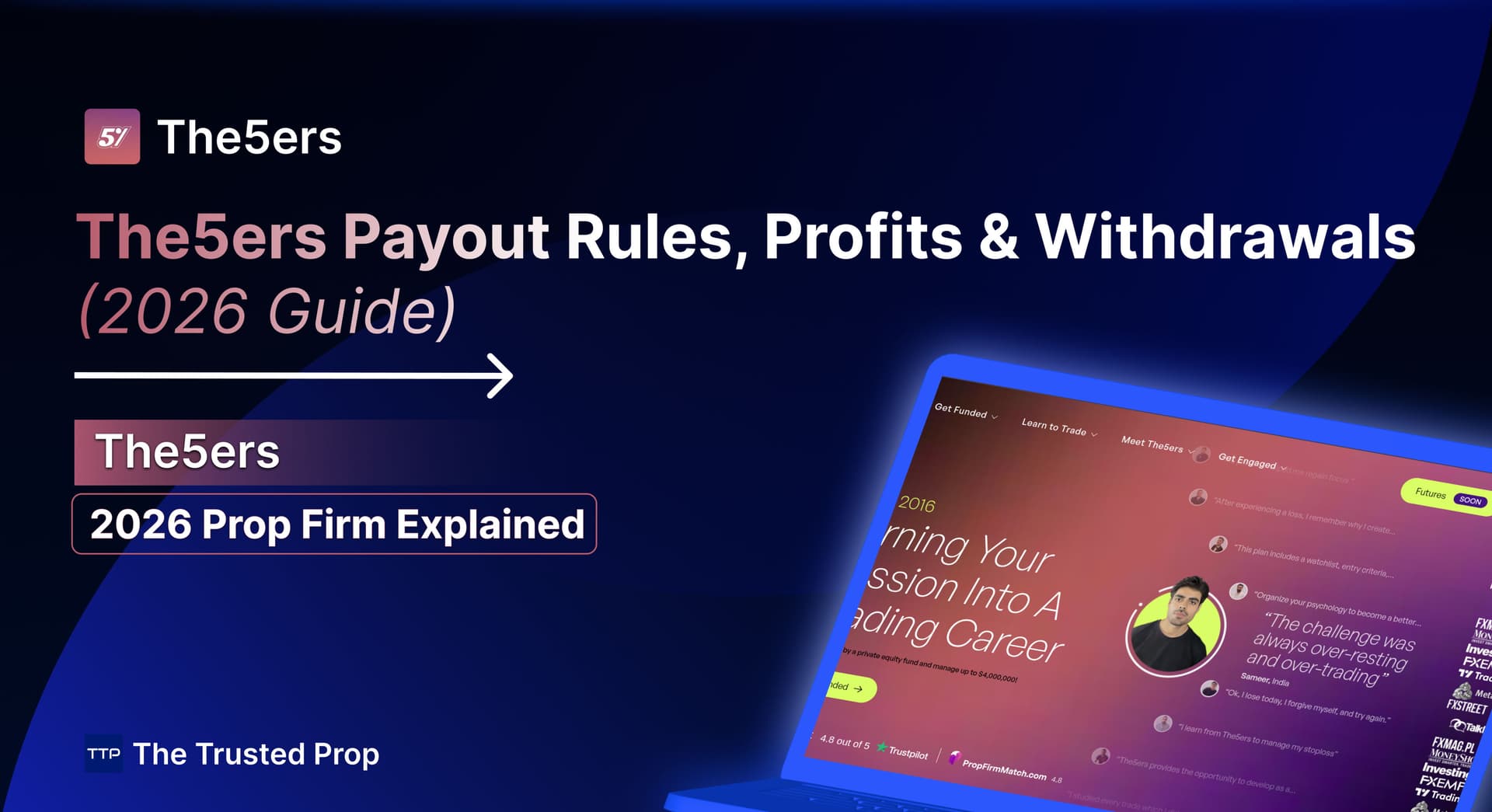
Goat Funded Trader Instant Goat Account Explained (2026)
.jpg&w=1920&q=75)
Goat Funded Futures Rules for Challenge and Funded Phase (2026)
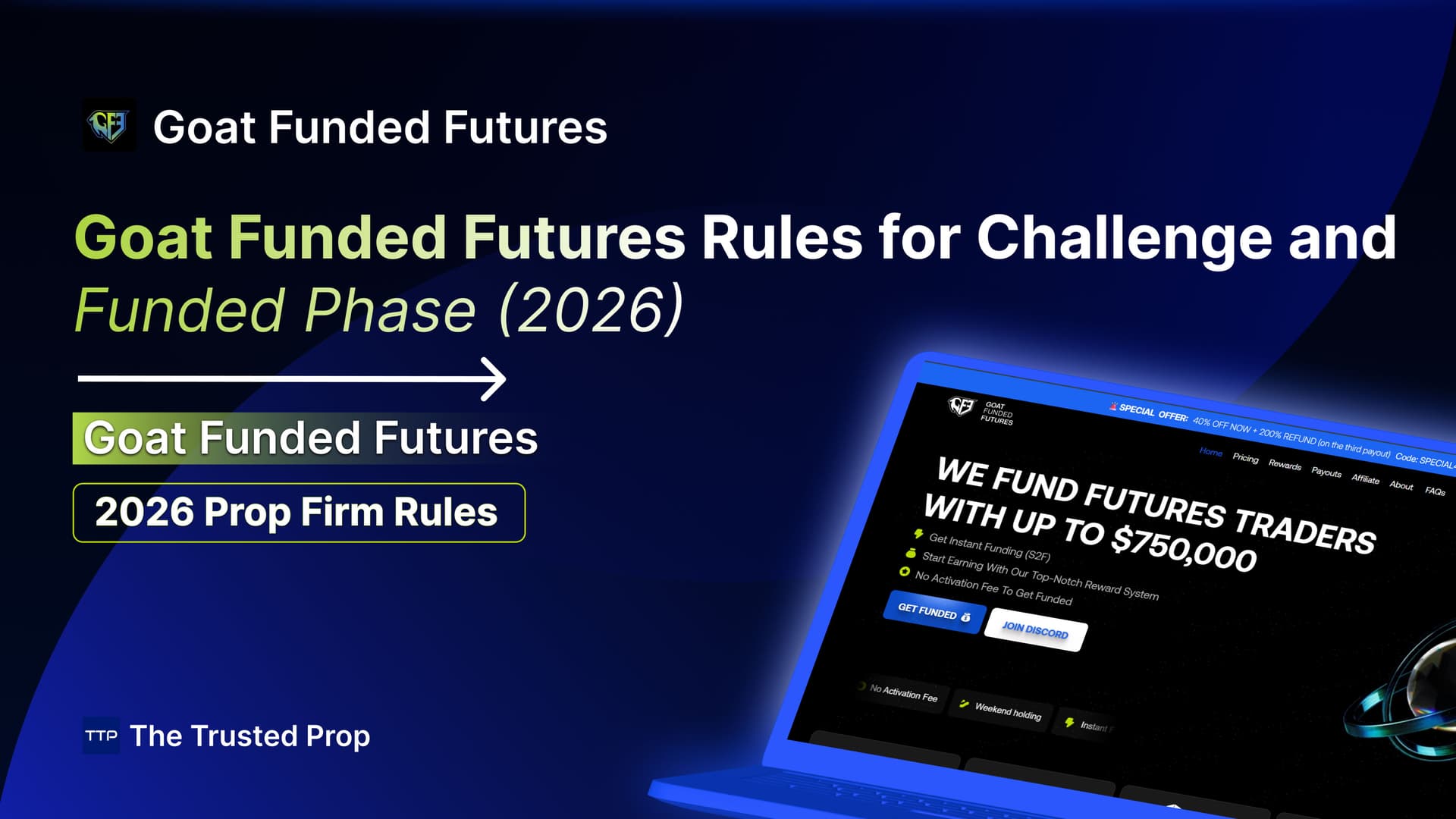
My Funded Futures Flex Challenge Explained (2026 Guide)
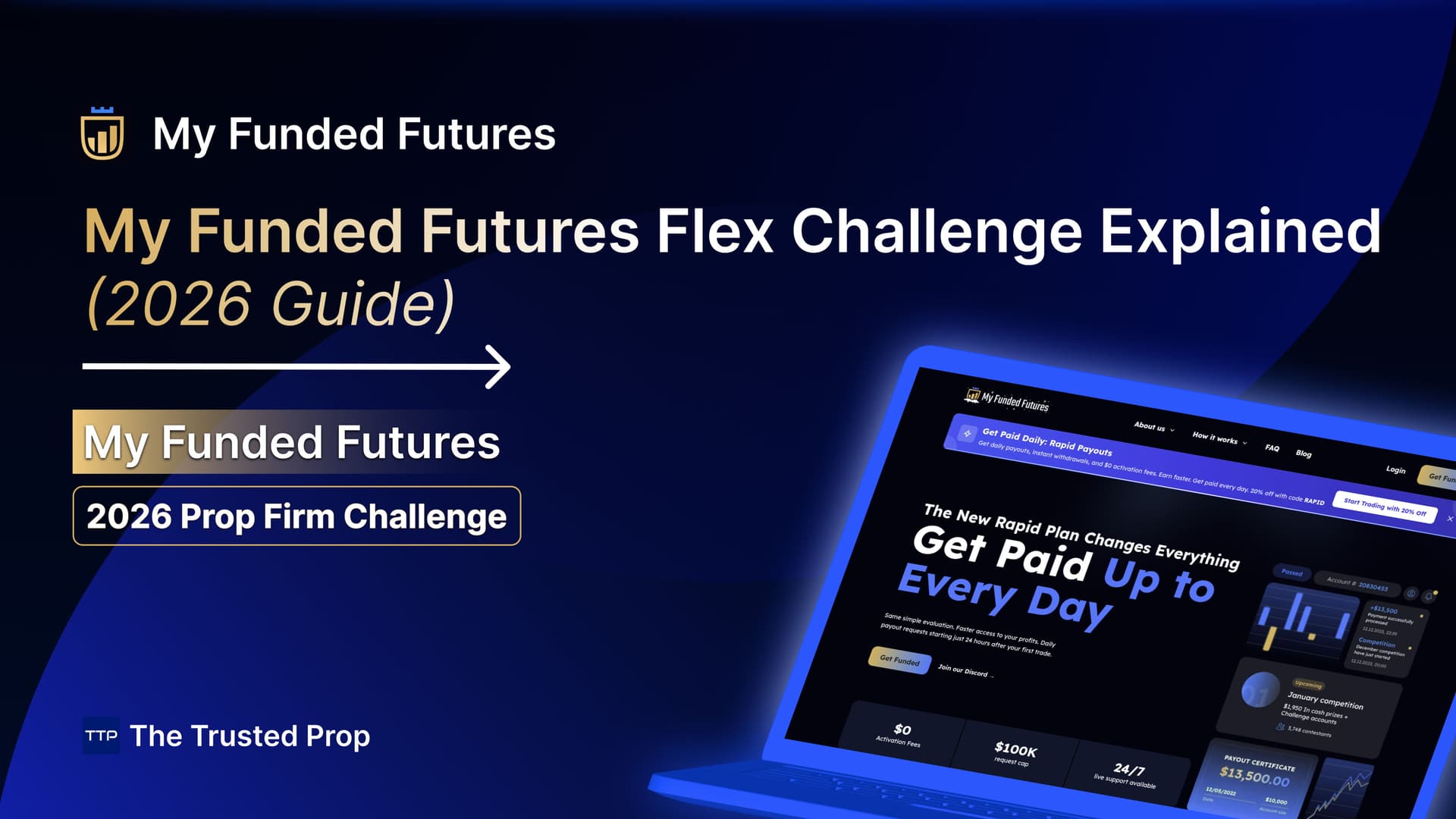
Moneta Funded Detailed Review 2026: Our Honest Verdict
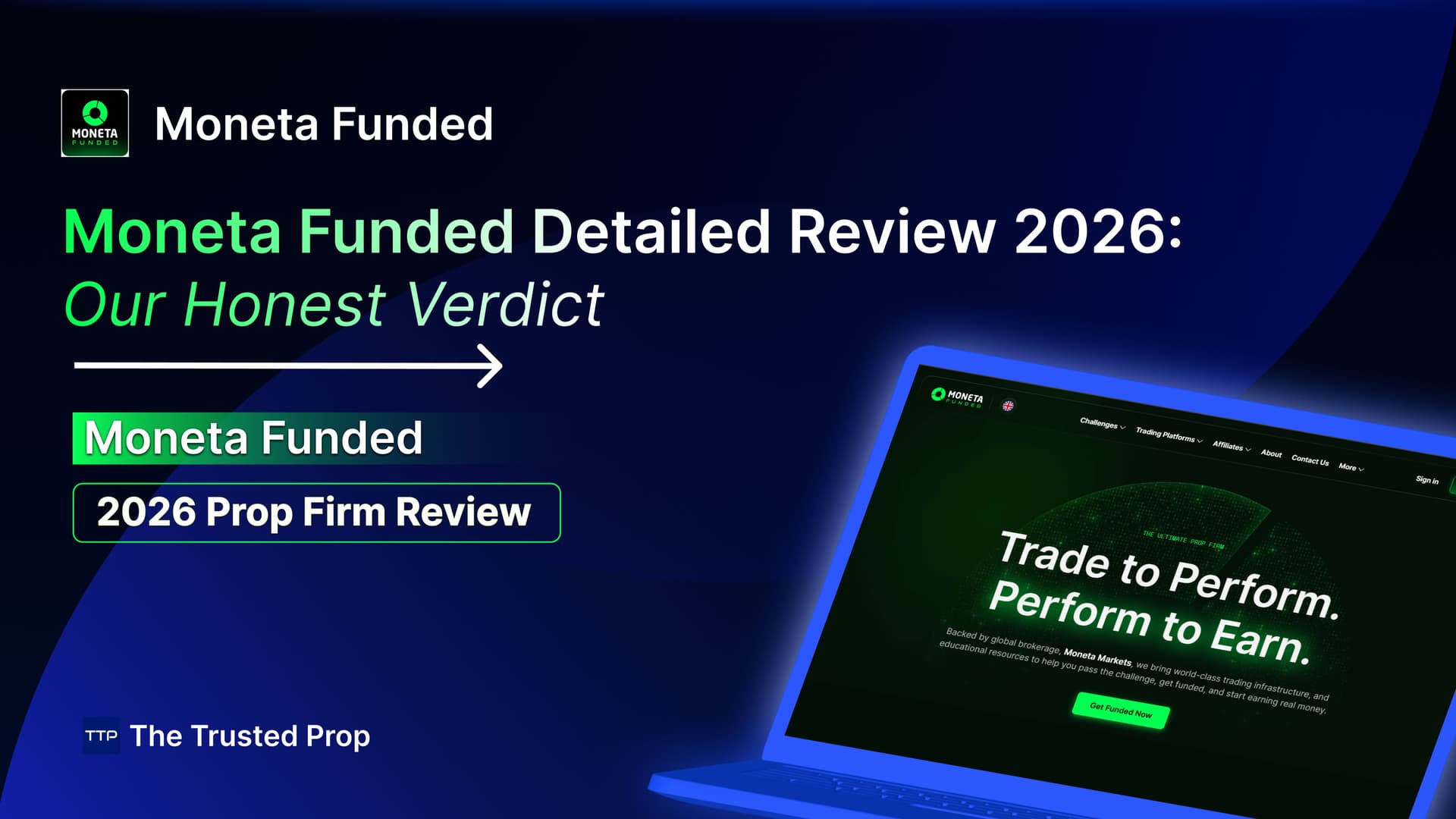
Evercrest Funding Detailed Review 2026: Our Honest Verdict
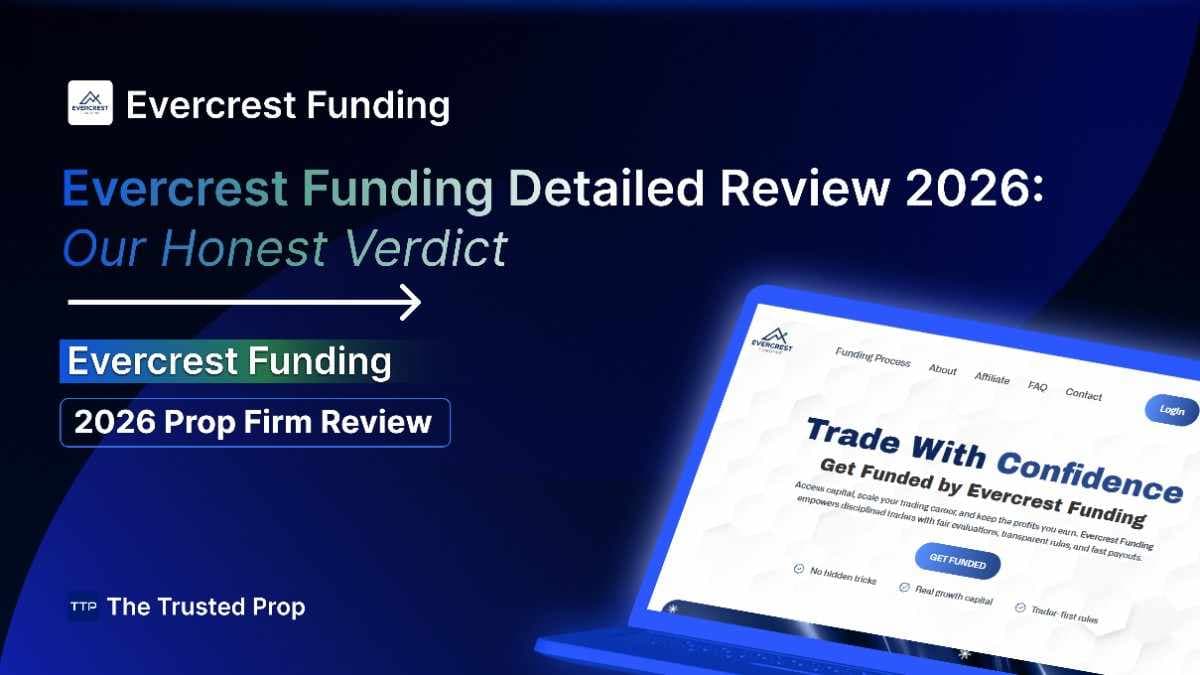
Breakout Prop Detailed Review 2026: Our Honest Verdict
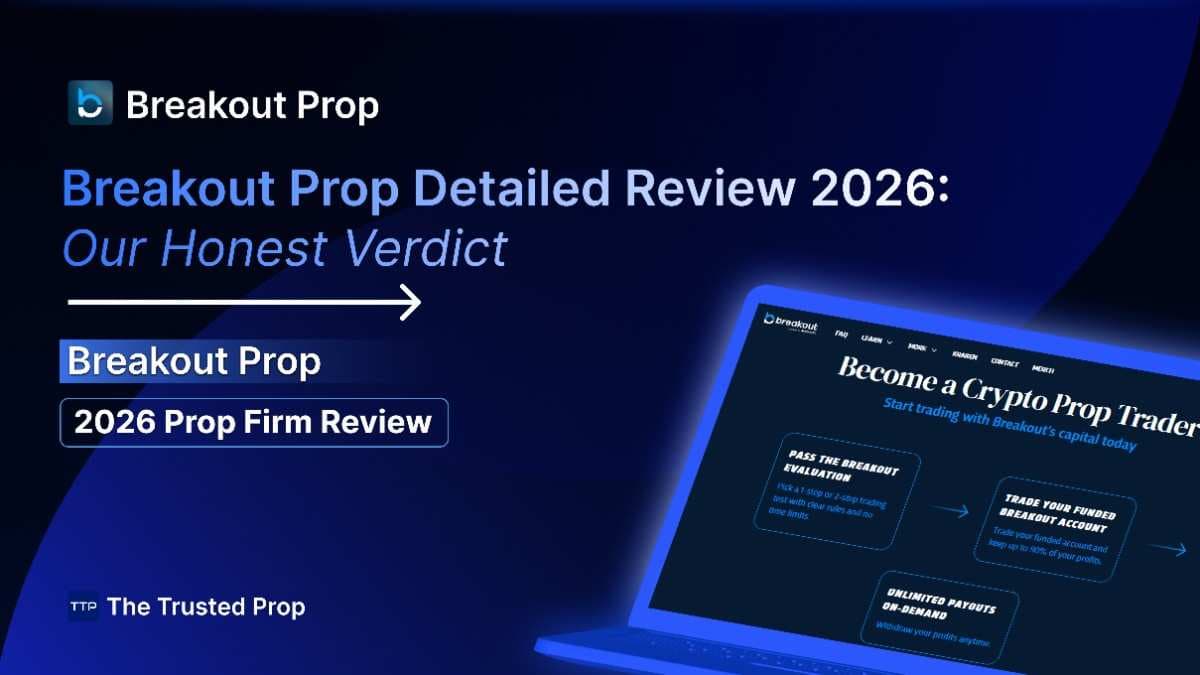
No FAQs are available for this topic yet.






















